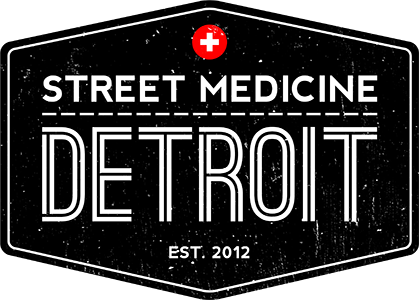While working with the homeless poses many challenges, one of the most difficult to navigate is the transient nature of the population. This creates difficulty in providing continuity of care, including scheduling follow-up visits, coordinating care through the complex social safety net, and charting our patients’ outcomes. With these challenges in mind, being able to follow a patient and witness the positive changes in his life is extremely rewarding.
Mr. Mason* was a homeless veteran with a past medical history of type II diabetes, post-traumatic stress disorder, bipolar affective disorder, and generalized anxiety disorder. Upon meeting Mr. Mason and running the available lab tests to determine his blood glucose values and HbA1c, we learned that he had gone without his prescription medications for quite some time. After a few visits with him, we were able to provide medications that stabilized his conditions and then to direct him to further medical services. While the scope of our practice is limited, Mr. Mason qualified for comprehensive care from Veteran Affairs (VA). After working through some of his initial hesitations about reentering the more formal healthcare realm, the Neighborhood Service Organization helped to redirect him to the care of the VA.
After Mr. Mason began services at the VA, we lost contact with him for some time. A year or so later, a colleague of mine described an emotionally labile homeless veteran under her care—a veteran who turned out to be Mr. Mason. I learned that he had been living at a VA facility, had joined a local church, and was beginning to find community and a support system at the VA. By his own account, he was progressing quite well until recently when he was assaulted, leading to his admission at a health care institution under my colleague’s care.
Mr. Mason noted to my colleague that he remembers our visits with him and that, in many respects, we had served as the necessary bridge for him to take back control of his life. Hearing these words is humbling, especially as our program is still in its infancy. The positive impact we have had in Mr. Mason’s life, however slight, exemplifies the beauty of street medicine and the influence that care and compassion toward others can achieve.
Johnny Wong, MSIII, Founder
with Sarah Bommarito, MSII, Communications Director
*Name changed to protect patient confidentiality.

